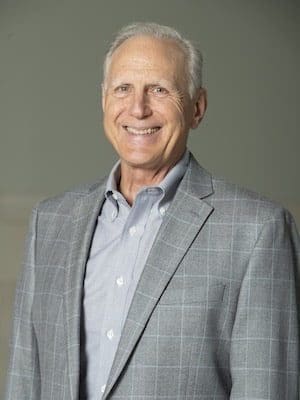
It’s been said that there are only two certainties in life: death and taxes. A few years back, I added a third: All tours end in the gift shop.
Having a sense of certainty about certain things is certainly good. We rest in the assurance of being loved and hold to some of life’s proven realities.
Yet, sometimes an overdose of certainty can remove the openness to fresh light and keep us mired in what once seemed right but could use reconsideration.
Doubt has been wrongly deemed a weakness to avoid, with certainty as the antidote.
Healthy doubt, however, allows for a life journey accompanied by humility, learning and a willingness to grant space — for oneself and others — to grow and learn.
A slap-to-the-head, defining book for my faith journey was Daniel Taylor’s The Myth of Certainty, published in 1986 by Word Books.
An English professor, Taylor defined a “reflective Christian” as a question-asker, a stone-turner, who refuses to “forfeit the life of the mind for mindless parroting of simplistic, culturally determined socio-religious agendas.”
That’s a mouthful, but also a mind full.
Taylor reminds reflective Christians, however, not to spend their lives in endless cycles of reflection without acting on the convictions that surface along the way, even if lightly held.
Though decades old, his words are applicable to the state of Americanized Christianity today.
“When people defend their worldview,” he writes, “they are not defending reason, or God, or an abstract system; they are defending their own fragile sense of security…”
If just that one point was taken — that we stop equating our views with God’s views — Christian faithfulness would look much differently.
Taylor sees the pursuit of truth and the love of God as one and the same.
“Nothing should be of higher value to the reflective Christian in difficult circumstances than an unqualified desire to see truth triumph,” he writes. “One should wish passionately that it prevails, should love it more than one’s own prestige or sense of security.”
Bob Guffey picked up this theme in his “Lectionary to Life” reflection last November for Center for Congregational Ethics.
“I have experienced a spiritually allergic reaction to people who were too certain, too smug, too convinced that not only were they on God’s side, but they were God’s side,” wrote Guffey, pastor of Freemason Street Baptist Church in Norfolk, Virginia.
Guffey, as do I, confesses to having believed and acted in such a way before — and wishes to “go back to apologize to the victims of my certainty.”
Like Taylor, he doesn’t eschew all certainties in life. But he notes that there were times when his “uninformed certainty may have been a defense against having to face up to life’s difficulties.”
If there is any life lesson we can learn from our own over-confidence and the displays of others, it is that knowing it all is quite the burden. It weighs us down rather than freeing us from anything other than having to think.
Of all the confessions I’ve offered and heard, not nearly enough of them have dealt with the damage caused by enshrined certainty that shows up as arrogance, insensitivity and self-absorption.
A faith that is not continuously reflective seems to have limiting factors that keep us from experiencing fresh ideas, new discoveries and God more fully.
When God gets squeezed into the mold of our measurements and possibilities, it enables us to make the divine into our likeness and personal preferences rather than the other way around.
Does God call us to be certain? Certainly not.
Our calling is to faithfulness in our failed attempts to follow Jesus, not to subscribe to all the “right” answers.
Acknowledging uncertainty opens us to needed humility and helps us to see how staggeringly arrogant some of our pronouncements can be — even when well-intended.
The evangelical emphasis on Jesus changing hearts needs to note that transformation often begins with the changing of minds. The apostle Paul thought so — presenting that as the way to avoid being conformed by cultural forces that call us to self-focus and self-preservation.
Being “transformed by the renewing of the mind,” as Paul puts it in Romans 12:2, allows us to “test” whether something is truly good and pleasing to God.
Too often what is sold as solid faith is in fact the concretized thinking and desires of one’s own making. Hence the defensive reactions today to what some call deconstruction.
Throwing open the windows of our lives to allow some new light to shine and some fresh winds blow just might leave us with a more liberating faith, held with a looser grip.
We shouldn’t have to begin each sentence with “I may be wrong…” That should be a given.
I’m pretty certain about that.
Editor’s note: This article is part of an ongoing series at Good Faith Media. If you would like to contribute to the series, please submit your column to [email protected].
Executive editor / publisher at Good Faith Media.

